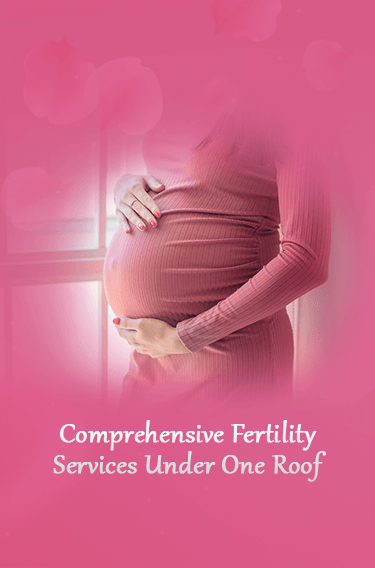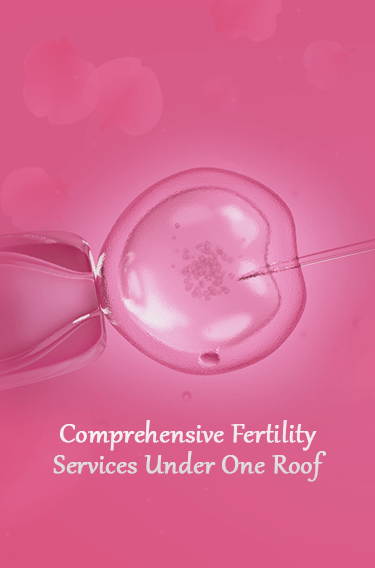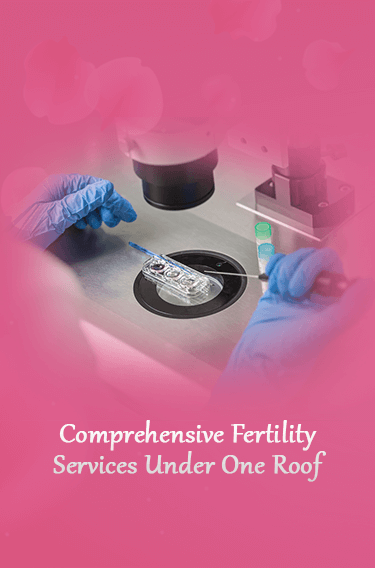When Should You Consult a Fertility Specialist?
Female infertility can be due to a wide variety of problems. Diagnosis and treatment of infertility problems may involve medical and/or surgical components. We offer all aspects of fertility care from the simplest to the most complex. We are also the regional referral Center for fertility surgery and receive patients from all over the Andhra Pradesh.
The Medical Research defines infertility as the inability to conceive after one year of unprotected intercourse. In women aged 35 and older, this time is shortened to six months. If you have a known or suspected problem, like irregular menstrual periods, do not wait 6 months to a year before seeing us. You do not need a referral. You can call to set up your new patient appointment at any time.
Infertility specialists, known as Reproductive Endocrinologists, undergo years of advanced training specifically dealing with the cause of, and treatments for, infertility. Fertility specialists must first complete a four-year residency in Obstetrics and Gynecology and must attain their board certification in Ob/Gyn.
After completing the Ob/Gyn residency and board certification testing, the fertility specialist must complete a three-year intense fellowship program in Reproductive Endocrinology and Infertility (REI) at a teaching/medical center. During this training, he/she learns the many facets of infertility causes and treatments and must demonstrate proficiency in delicate microsurgical and laparoscopic surgical techniques. The Fellow in REI works under the tutelage of respected leaders in reproductive medicine. A written board exam followed by an oral exam is required to be passed in order to be REI subspecialty certified. The average pass rate for the oral exam is 60-70%, so it is very difficult and prestigious to receive an REI subspecialty certification.
The “one-year benchmark” for referral is a useful general rule but there are many cases when a fertility specialist should be consulted sooner. For example, if a woman has a “known cause” of her infertility, such as polycystic ovarian syndrome, she should see a specialist immediately. In many cases, the initial diagnostic tests ordered by the Ob/Gyn will point to conditions that usually are managed by a specialist, such as damaged or blocked fallopian tubes.
Another reason to consult a fertility specialist quickly is the presence of moderate to severe male factor infertility. Advanced reproductive technologies such as intrauterine insemination or IVF with ICSI, may be the “first line” treatment for severe male infertility. Wasting your time and money doing clomiphene (clomid) with or without intrauterine inseminations of sperm can be avoided.
A patient’s failed response to Clomid is a reason to refer to a fertility specialist. Numerous clinical studies demonstrate that Clomid treatment is most likely to succeed in the first three or four ovulatory cycles and treatment beyond six cycles is not recommended. Extensive use of Clomid is generally a waste of time and money. If a woman has not conceived after three to six months of Clomid treatment, she should see a fertility specialist.
One of the initial fertility treatments may be intrauterine insemination (IUI) with FSH drug stimulation. Stimulated IUI cycles must be administered and monitored by a fertility specialist. In fact, the physician information sheet for these products specifically states that they should only be administered by a fertility specialist (reproductive endocrinologist).
Women aged 35 and over should see a specialist much sooner than younger women. This is because fertility can decline precipitously and being organized and choosing more effective treatment options sooner is often prudent. Two other findings have been stated in many peer-reviewed medical journal articles. First, treatment by a certified fertility specialist has been shown to be more likely to produce a healthy pregnancy in a short period of time. Second, this treatment is usually less expensive.
We try to control expense by not repeating treatments multiple times when the chances of pregnancy are low, such as repeated Clomid/Letrozole cycles. It is a common misconception that women who see a specialist will become IVF patients. Actually, the percentage who will eventually require IVF is less than 20% dependent upon the practice profile (patient age, tertiary referral center, etc.). The vast majority of women become pregnant using less expensive and simpler treatment techniques.
Infertility is a very complex subject with a myriad of causes. Do not be confused by untrained doctors who claim to be fertility providers. Sometimes they are family doctors, internists or medical endocrinologists. They have no specific training or certification to provide fertility care and they aren’t available 7 days a week to optimize your success. Because they offer such limited diagnostic and treatment options they often have an exaggerated focus on simple issues such as ovulation problems. These are termed “luteal phase deficiency” which research has shown nearly all patients have on occasion and treatment is usually not as helpful or useful. They often miss the “big picture” of what is actually the cause of infertility, wasting patients time and money. If you have been told your problem is “luteal phase deficiency,” you need to come see us for a second opinion.
The most important thing to remember as you consider consulting with an infertility specialist is that you are not alone. Infertility is more common than you may think, affecting 1 in 10 couples. We understand how difficult and frustrating the infertility journey can be. Our goal is to offer warm, personalized supportive care to couples to try to make the process as easy as possible.















